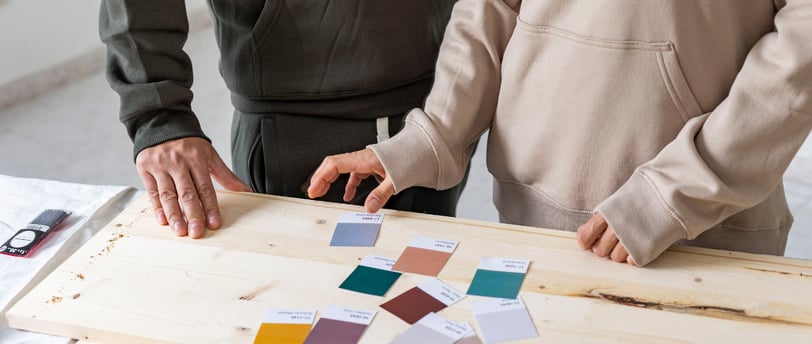How to Choose the Perfect Paint Color: A Comprehensive Guide for Homeowners
This in-depth guide offers homeowners a strategic roadmap to confidently transform their living spaces, combining psychological insights, design principles, and practical techniques to make informed color decisions.


Imagine walking into a room that instantly feels like home—a space that reflects your personality, soothes your soul, and transforms your living environment. Choosing the perfect paint color is more than just a design decision; it's an emotional journey that can dramatically reshape your home's atmosphere, mood, and entire aesthetic appeal. Many homeowners feel overwhelmed by the endless sea of color swatches, paralyzed by the fear of making a costly mistake that could diminish their space's potential.
Decoding the Color Selection Maze: Your Ultimate Roadmap
Understanding the Psychological Impact of Color
Color is a powerful communicator. It doesn't just decorate a space—it creates an experience. Each shade carries its own emotional language, capable of:
Expanding or contracting perceived room size
Influencing mood and psychological state
Creating visual harmony or intentional contrast
Reflecting personal style and aesthetic preferences
The Professional's Approach to Color Selection
Seasoned interior designers employ a strategic methodology that goes far beyond random color picking. Here's an insider's blueprint for making the most informed paint color decision:
1. Lighting: The Invisible Color Transformer
Natural and artificial lighting dramatically alter how colors appear. Professional designers recommend:
Observing color samples at different times of day
Considering room orientation (north-facing vs. south-facing)
Testing large paint swatches under actual room lighting
Using LED bulbs that most accurately represent true color
2. Undertone Mastery: The Hidden Color Dimension
Most amateur painters overlook undertones—the subtle secondary color embedded within a primary shade. Detecting undertones requires:
Understanding base color families (warm vs. cool)
Comparing colors side-by-side
Using white paper as a neutral background for comparison
Recognizing how undertones interact with surrounding elements
Advanced Color Matching Techniques
Harmonizing with Existing Elements
Before selecting a paint color, conduct a comprehensive room inventory:
Analyze flooring materials
Review furniture upholstery
Examine artwork and decorative accessories
Consider architectural details and fixed elements
Pro Tip: Create a mood board that includes fabric swatches, furniture images, and potential paint colors to visualize cohesive design.
Technology-Enhanced Color Selection
Modern tools have revolutionized paint selection:
Virtual room painting apps
Color matching software
Augmented reality visualization tools
Professional color consultation platforms
Sample Before Committing
Never choose a color without:
Purchasing sample sizes
Painting large test patches
Observing colors in different lighting conditions
Living with the sample for at least 48 hours
Common Color Selection Pitfalls to Avoid
Trusting small color swatches
Neglecting room's natural lighting
Ignoring existing room elements
Failing to consider room's psychological purpose
Overlooking paint finish implications
Strategic Color Selection Framework
Room-Specific Color Psychology
Bedrooms: Soft, calming tones
Home offices: Productivity-enhancing colors
Living rooms: Welcoming, versatile shades
Kitchens: Energetic, appetite-stimulating hues
Bathrooms: Clean, refreshing palettes
Final Recommendations: Your Color Selection Checklist
Collect multiple color samples
Test in actual room environment
Consider lighting conditions
Analyze undertones
Match with existing design elements
Use technological visualization tools
Trust your intuition
Empowering Your Color Journey
Selecting the perfect paint color is an art and science combined. By understanding the intricate details of color psychology, lighting dynamics, and design principles, you transform a potentially stressful experience into an exciting creative process.
Ready to revolutionize your space? Start your color exploration today, and remember: the perfect color is waiting to tell your home's unique story.
support@freshcoatliving.com
© 2025. Fresh Coat Living - All rights reserved.
This page may contain affiliate links, which means I may earn a commission if you purchase through my links at no extra cost to you.
